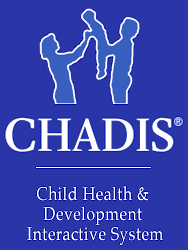The CDC announced this week that doctors in the U.S. have reported more than 18,000 cases of pertussis, also known as whooping cough, so far this year. That is the highest rate of infection in 50 years! The reasons for this increase are unclear, and may include better diagnostic testing, changes in vaccine design, and decreased vaccination rates. The subject is important because the consequences of pertussis infection are potentially quite serious. To date, nine infants have died this year from pertussis.
Pertussis is a bacterial infection primarily affecting the respiratory tract. It is spread by coughing and sneezing. It came to be called whooping cough because of the unique inspiratory “whoop” sound that some children develop later in the disease. Over 200,000 cases a year were reported in the U.S before widespread vaccination became available in the 1940’s, making it once a major cause of infant mortality. The routine childhood vaccine schedule now includes multiple doses of pertussis vaccine beginning at 2 months of age so that most children should enter kindergarten immune to whooping cough. Unfortunately, the immunity tends to wane over time. The recommended vaccine schedule therefore includes a booster shot at 11-12 years of age called TdaP which covers tetanus and well as pertussis.
Pertussis poses the most serious risks under 1 year of age. When adults and older children are infected, their symptoms are generally less severe, but the cough can last for up to 10 weeks. As a result, adults play an important role in spreading the disease. Anyone who has not been vaccinated against pertussis should discuss the TdaP vaccine with their primary health care provider, especially people who have regular contact with young children. Adolescents should also check to make sure they received their booster shot at the appropriate time. Pertussis can be treated with antibiotics, but the diagnosis is difficult to make early in the illness. Any patient suspecting they have pertussis should contact their primary care provider as soon as possible.
It is easy for us to forget the importance of routine immunizations when the diseases they prevent are only distant memories from previous generations. Sadly, reminders of the importance of these vaccines seem to keep coming up.



